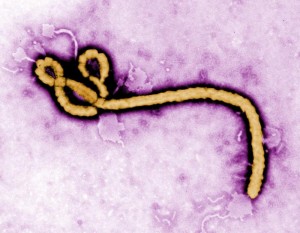A second health care worker at Texas Health Presbyterian Hospital who provided care for the first Ebola patient diagnosed in the United States, Thomas Eric Duncan, has tested positive for the disease.

The health care worker reported a fever Tuesday and was immediately isolated at the hospital.
Health officials have interviewed the latest patient to quickly identify any contacts or potential exposures, and those people will be monitored. The type of monitoring depends on the nature of their interactions and the potential they were exposed to the virus.
Confirmation testing at the Centers for Disease Control and Prevention’s laboratory is being done.
It is now learned, according to nurses, was left in an open area of a Dallas emergency room for hours, and the nurses treating him worked for days without proper protective gear and faced constantly changing protocols. The National Nurses United says nurses were forced to use medical tape to secure openings in their flimsy garments, worried that their necks and heads were exposed as they cared for a patient with explosive diarrhea and projectile vomiting.
Related: The Complex Procedures To Don & Doff PPEs For Ebola
The condition of the 1st health care worker infected with Ebola, Nina Pham, according to Texas Health Presbyterian Hospital, is she is in good condition.
The CDC said yesterday they will be taking the following actions:
- Sending an additional team to Dallas, including experts who successfully controlled outbreaks of Ebola in Africa in the past two decades, including in health-care settings. Team members have worked with Doctors Without Borders on infection control protocols and trained others in Africa to follow those protocols. This expertise is being directly shared with the hospital. In addition, two infection control nurses from Emory University hospital who have experience treating Ebola patients without infecting health-care workers are joining the response at the Dallas hospital to provide peer-to-peer training and support. This combination of training will help hospital staff across a range of care and management experiences.
- Making immediate and specific improvements to processes and procedures at the Dallas hospital to reduce risk to health care personnel. Care for a patient with Ebola requires meticulous attention to detail, and refining these steps makes it safer and easier.
- Having a site manager in place and at the Dallas hospital 24/7 as long as Ebola patients are receiving care, to oversee the putting on and taking off of PPE and the care given in the isolation unit.
- Establishing a dedicated CDC response team that could be on the ground within a few hours at any hospital with a confirmed patient with Ebola. The CDC Response Team would provide in-person, expert support and training on infection control, healthcare safety, medical treatment, contact tracing, waste and decontamination, public education and other issues. The CDC Response Team would help ensure that clinicians, and state and local public health practitioners, consistently follow strict standards of protocol to ensure safety of the patient and healthcare workers.
- Providing more opportunities for U.S. healthcare providers to receive additional training and to get their questions answered from CDC experts. On Tuesday, CDC held a partner conference call where more than 5600 clinicians from across the country joined. Later this week, CDC will host a call with the American Nurses Association to discuss how to better prepare frontline nurses for Ebola; and another call with the American Hospital Association. Next week, CDC will host a live event in New York City with the Partnership for Quality Care and the Greater New York Hospital Association/1199SEIU Healthcare Education Project to educate frontline healthcare workers on Ebola; the event will be streamed live to hospitals across the country


2 thoughts on “Dallas Ebola: 2nd health care worker tests positive”